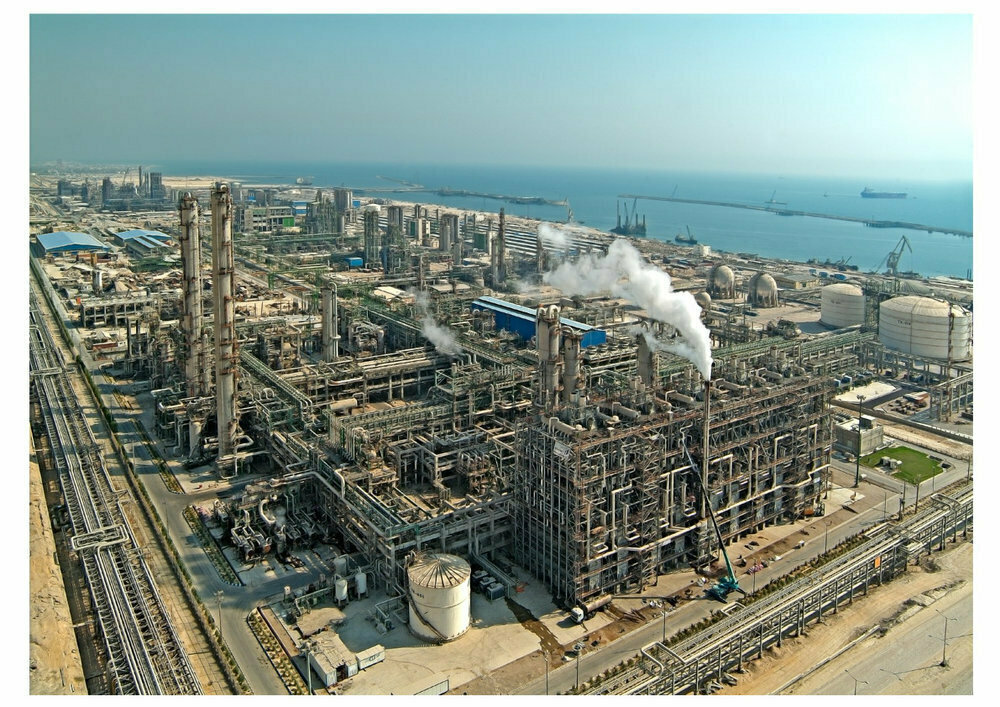‘Oil refineries more than enough, focus on gas, petro-refineries’

TEHRAN – Having abundant hydrocarbon resources, Iran has been strongly focusing on the development of its refining industry to reduce the reliance on the exports of crude oil.
To achieve this goal, the Oil Ministry has been allocating a considerable portion of the country’s budget resources to the construction of new oil refineries in various parts of the country.
Some energy experts, however, have recently claimed that Iran does not require more refineries, and instead of constructing new oil refineries the Oil Ministry should focus on the development of other sectors like the gas industry or upgrade the existing refineries.
Energy Expert and the Secretary of Iranian Oil, Gas and Petrochemical Products Exporters' Union (OPEX) Hamid Hosseini seems to agree with the said claims and believes that the country has already enough capacity of existing refineries and does not need to construct more, at least for now.
He told the Tehran Times that one of the major issues that should be taken into consideration regarding the mentioned subject is the financial and funding aspects of the matter.
“Managing the financial resources is the backbone of the economy and monetary issues should be one of the major factors when considering the development of any sector,” he said.
According to Hosseini, constructing a refinery with a capacity for processing 300,000 barrels of oil per day, requires at least $10 billion, and considering the country’s current economic situation and the limitations of the financial resources, constructing new oil refineries is not economically justified.
Many of the country’s refineries are currently producing products that are not very competitive and even have limited markets; constructing refineries with the same output is not going to help the country’s economy in any way, Hosseini stressed.
He said the Oil Ministry is now providing subsidized feedstock to many of the oil refineries and if this support is cut, the production from many of the refineries will not be profitable.
“Following the completion of the third phase of the Persian Gulf Star Refinery (PGSR) Iran has not only become self-sufficient in gasoline production but also become an exporter of the product, so we don’t even need more refineries considering the gasoline sector.”
“We need to focus on the gas industry instead; we have great gas resources and should benefit from them by constructing gas refineries or developing the Liquefied Natural Gas (LNG) industry.”
Petro-refineries are yet another sector that has come under the spotlight in the world's energy industry, and Iran like many other developing nations have stepped up its efforts for keeping up with the world’s latest developments.
The official noted that so far the country’s refineries have been mostly focused on supplying fuel needs including gasoline, gas oil and etc., however, future planning should be more focused on developing petro-refineries.
According to Hosseini, the Internal Rate of Return (IRR) of petro-refiners, depending on their configuration, varies from 16 percent to 20 percent, which is 3-4 times more profitable compared to the old refineries and petrochemical complexes.
Back in June 2019, the Research Center of Iran’s parliament said in a report that petro-refineries are two times more profitable than refineries and suggested that the National Iranian Oil Company (NIOC)’s new refinery projects be defined as petro-refineries.
The report dubbed “Petro-refineries, their role in completing the oil value chain and the status in Iran’s oil industry” stated that constructing petro-refineries is one of the most important ways to alleviate the severe economic impacts of price fluctuations and achieve a much higher margin of profit.
“Of course, very positive measures have been taken in this regard, for instance, the government is leaning toward the private sector for the development of the oil and gas industry’s downstream sector,” Hosseini said.
“Oil Ministry has authorized several domestic companies for the construction of petro-refineries across the country and this is the first step in a very good direction.”
EF/MA
